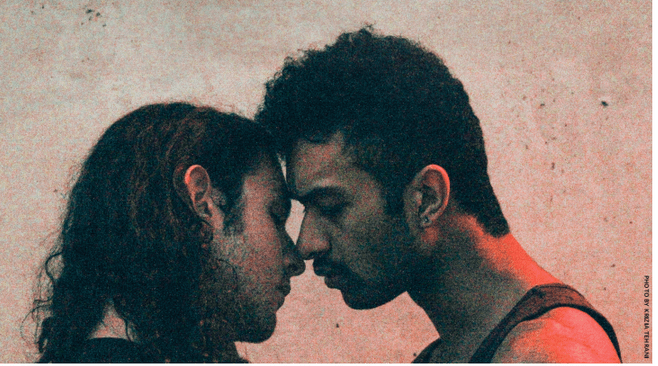Alex S., Contributor
At 14 years old, I cut off four feet of hair from my head, leaving only enough to cover my ears. I was happy with the change but everyone around me had different reactions. “Well,” they’d start hesitantly, “it’s different.”
Yes, short hair is different from long hair.
Astute observation.
Their hesitance made a little more sense when my friend Jay bluntly remarked, “You look like a boy. Or a lesbian.” Jay was never good at filtering himself. But that didn’t make me unhappy. In fact, it made me happy to think that others might think I was a boy.
At 15, my history class went on a field trip to a war museum. My hair was still short but I had begun learning about LGBTQ+ from new friends I had made that year. I had only ever known about a few different sexualities, so the idea of different genders was new and foreign.
It was a pretty standard affair, as far as tours go. Our tour guide lead us around the museum and offered details and anecdotes.
He spoke about the roles of men and women in war, the jobs that each would have based on their gender, and he began to hand out something. They were like name tags but instead of a name, they each had jobs on them. He was assigning each of us a job that we would have had during the war.
Every tag he handed out was pink or blue. I cringed, thinking, this is what the world thinks is normal. This is what I thought was normal and it’s these kind of distinctions that made me believe it was normal.
He handed me a blue tag, my job was a bomber.
I was so happy. I think that my happiness came from the irony of situation. You assign jobs based on birth sex and work with this binary but can’t even discern what I was born as.
Unfortunately, I was so happy that I turned to my friend beside me and laughed, in my awful high-pitched voice, “I’m a bomber.” Wordlessly, the tour coordinator circled around, took away my blue tag, and gave me a pink one. I was now a factory worker. I was extremely upset and I didn’t know why.
At 16, I realized I was transgender. Rather, that I was a boy.
It is much easier to tell people I’m a guy and let them roll with it than it is to explain that gender is more complicated than society suggests it to be and I happen to not fit the model that people suggest to be the norm.
To introduce these concepts to people who weren’t familiar with them would probably involve a Power Point and divulging more personal information than I would be comfortable with.
At 17, I hit an emotional low point. I became hyper-aware of gender expectations, stressed over anything about myself that was feminine, and tried to correct it. And those fixations became overwhelming.
Before that point, I had seen the term “fragile masculinity” and I didn’t take it seriously. All of a sudden, I identified with a term. I realized my masculinity was incredibly fragile and constantly challenged, but unlike other guys, nothing emasculated me more than my own biology.
The low that I felt during that time often resurfaces, but never as concentrated as it was during the first two years. I’m 19 now. My resolve over my gender has not shifted, but I’m still struggling with transitioning and still struggling with fragile masculinity. I’m elated when people call me “sir,” only to feel disappointed when they amend themselves with “her.”
At 18, I attended my high school commencement ceremony and Jay was there. We were never close friends. He was in a very different group of people than mine and he often came off as intolerant. I went to a table he was at and, after a moment, he said, “Oh, it’s Alex. I thought you were some random dude at first.”
Quietly, I mumbled, “Well, you’re not wrong.”
A pause. “You’re transgender?”
A longer pause. “Y-Yeah.”
“That’s cool,” he shrugged.
I was stunned. He was the last person I would have expected to say something like that. No mocking, no prying, just a mellow acknowledgement.
That short, final exchange made me incredibly happy and hopeful. It made me wish that everyone could learn to be casual when faced with difference. But, more than anything, it makes me believe that the world is capable of changing.


